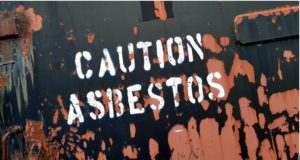As someone who’s invested cannily in the property industry over the years, you want to ensure that your investment sticks, slowly making you money either through rental payments or through the home’s appreciation in value – or, indeed, through both. The steps you need to take to protect your property portfolio are simple, though often overlooked. When managing your other business and your leasers too, you can quickly forget to put the safety measures in place to ensure you’re keeping your property business safe and secure. This article outlines how you can protect your property portfolio from damage and financial burdens.
Sensible Renters
If you’re filling your home with renters to make money out of them instead of leaving them empty, it’s important to make sure you’re getting the right kind of conscientious and responsible characters into your abodes. Make sure they have references and a deposit to pay up-front as a minimum and don’t be afraid to lay down a number of house rules before a contract is signed. Be patient and fair – but don’t let your tenants get away with poor and damaging behavior that can cost you and your properties in the long-run.
Health and Safety
If you’re renting your homes, doing construction work on your properties, or even leaving them empty, you’ll be liable for any health and safety mishaps that occur on your property’s land. This can include anything from small construction injuries through to fire hazards if you’ve not put the right measures in place to protect your tenants. As well as observing all necessary health and safety standards, you should look into business insurance quotes that’ll help cover the costs of liability should a third party come to wish to sue you for damages they incur on your property.
Regular Inspections
Many property owners and portfolio managers wrongly believe that the hard work in this industry is simply earning the cash to buy the property – that once you have your portfolio, you’ll be earning money for old rope. Your duties can quickly evolve into a full-time job – and one of the absolute fundamentals is to regularly check your property for such things as:
- Interior or exterior damage
- Signs of mismanagement
- Signs of more tenants living in your abode than contractually or legally permitted
- Health and safety hazards that might be developing
The list certainly goes on. Being a presence at your properties will ensure that your tenants know you’ll react if they do anything wrong – so make sure you’re making those regular checks.
Diversify
Finally, from a business perspective, you should try to diversify your property assets to avoid the damages that either a natural disaster or a damaging price fluctuation in housing can inflict on your investments. Make sure you’re investing in different neighborhoods and cities and that you’re monitoring the housing market constantly to see where you might best make a new investment and get rid of one that’s at risk of being devalued over time.
These tips will help protect your growing property empire, putting the measures in place to help you protect your astute investments in the long term.








